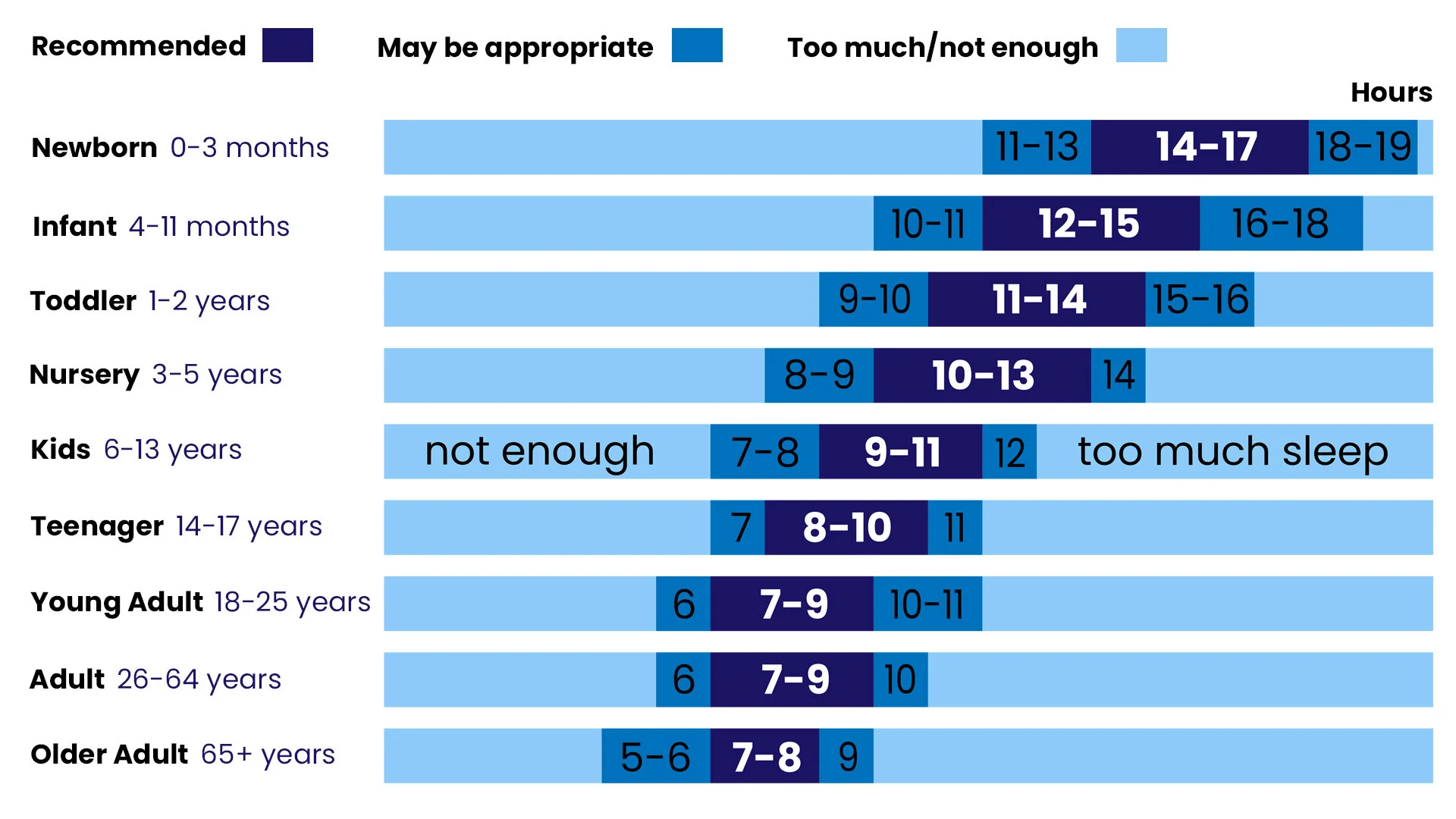How much sleep do we really need?
We all know 8 hours is the magic number for a decent night’s sleep. Or is it?
Nobody seems to know where this number came from. In surveys and questionnaires, people tend to say they sleep for between 7 and 9 hours a night, which might explain why the average 8 hours has become a rule of thumb. But people also tend to overestimate how long they have been out for the count.
A sleep study of tribal cultures with no access to electricity found that they get just 6 or 7 hours without any negative effects on their health. So the 8-hour rule has no basis in our evolutionary past.
What studies have shown is that the amount of sleep we need is influenced by our genes and varies among individuals. Exactly which genes are involved is not well understood, but a recent study of over 50,000 people found one gene variant that added 3.1 minutes of sleep for every copy you have. The amount of sleep you need also changes as you age. Taking this into account, the US National Sleep Foundation updated their guidelines last year, and came up with a recommended range of 7 to 9 hours for adults, but with added leeway of an hour either side to account for your natural genetic variation:
So how much is enough for you? A general rule of thumb is that you shouldn’t need an alarm clock to wake you up in the morning. Maybe a sleep tracker? (read more about sleep trackers here)
But it’s not that simple unfortunately. While giving yourself more time under the covers can be good for your health, take care – you can have too much of a good thing. There seems to be a sweet spot for all health-related behaviours - eating, exercise and also sleeping. Studies have shown that regularly getting 10 hours or more could send you to an early grave. Just why this is remains a mystery. It could come down to the simple fact that when we are asleep we are moving very little, and there’s plenty of evidence to show that inactivity is bad for you. So try cutting down and see how you feel.
What of those annoying people who claim to get by just fine on a few hours each night? They probably are sleep-deprived but have got used to the effects and now fail to notice them as strongly. Or else they may simply be napping later on in the day. Only a tiny minority of us, probably less than 3 per cent, can get by on 4 to 6 hours of sleep with no problems at all. Ying-Hui Fu at the University of California, San Francisco, and her colleagues found a particular gene in a family of these natural short-sleepers. When the team engineered mice to express this short sleep gene, they recovered from sleep deprivation quicker and seemed to whizz through the non-REM stages of sleep faster than non-engineered mice.
The team thinks this gene variant interacts with proteins that are at the core of the circadian body clock, opening up the tantalising possibility that, one day, we could genetically engineer our way to a shorter night’s sleep, without any of the downsides.

